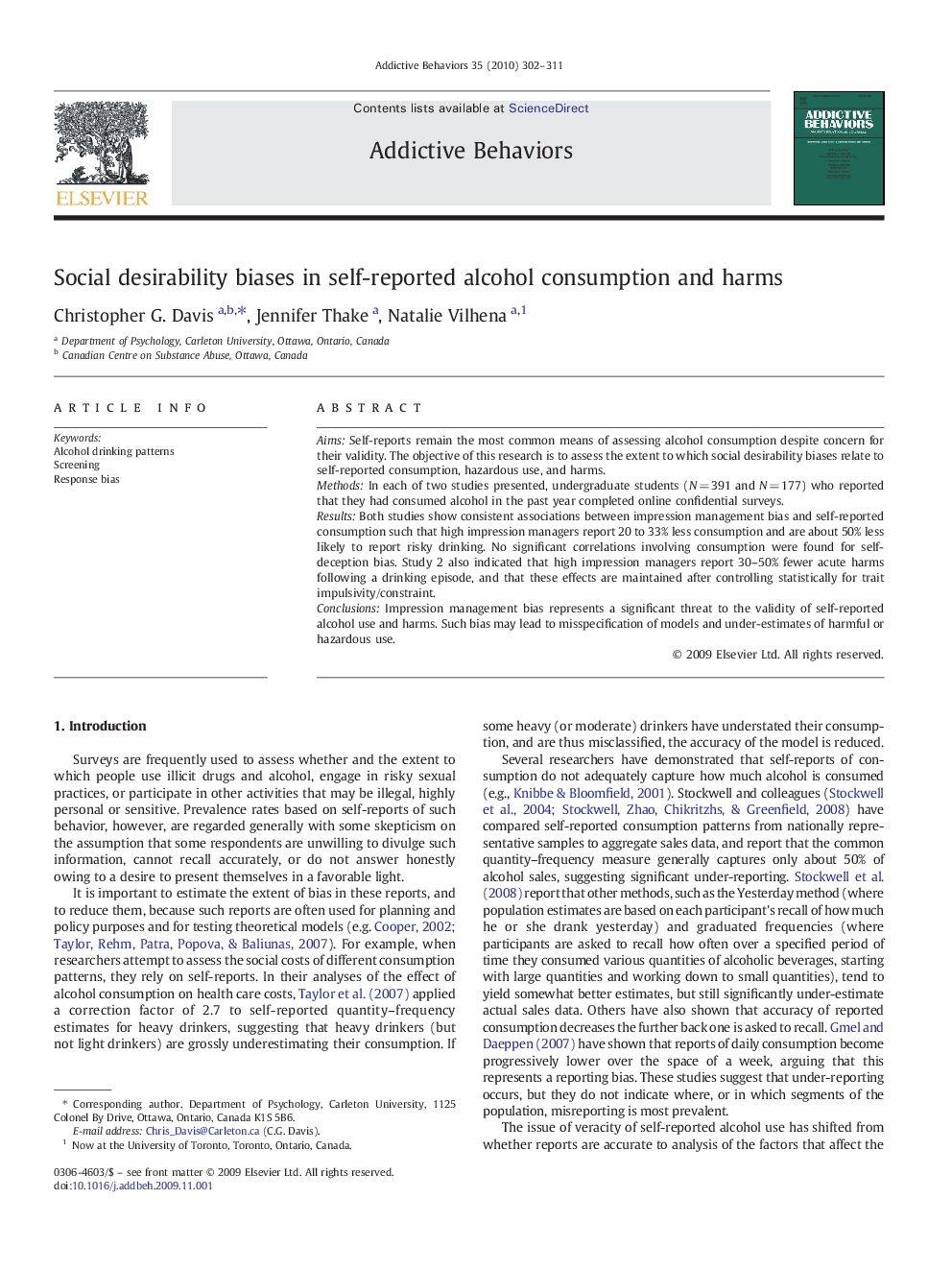| Article ID | Journal | Published Year | Pages | File Type |
|---|---|---|---|---|
| 899425 | Addictive Behaviors | 2010 | 10 Pages |
AimsSelf-reports remain the most common means of assessing alcohol consumption despite concern for their validity. The objective of this research is to assess the extent to which social desirability biases relate to self-reported consumption, hazardous use, and harms.MethodsIn each of two studies presented, undergraduate students (N = 391 and N = 177) who reported that they had consumed alcohol in the past year completed online confidential surveys.ResultsBoth studies show consistent associations between impression management bias and self-reported consumption such that high impression managers report 20 to 33% less consumption and are about 50% less likely to report risky drinking. No significant correlations involving consumption were found for self-deception bias. Study 2 also indicated that high impression managers report 30–50% fewer acute harms following a drinking episode, and that these effects are maintained after controlling statistically for trait impulsivity/constraint.ConclusionsImpression management bias represents a significant threat to the validity of self-reported alcohol use and harms. Such bias may lead to misspecification of models and under-estimates of harmful or hazardous use.
